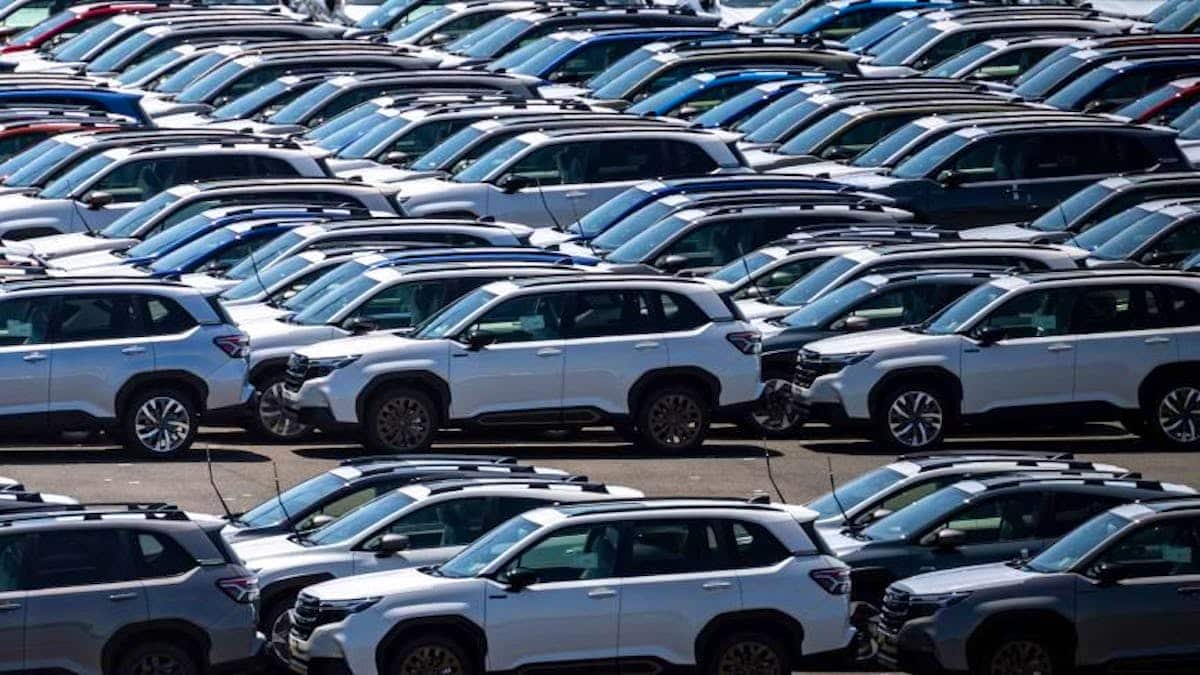The reduction of Donald Trump’s customs duties on Japanese cars, provided for by the trade agreement concluded this summer between the United States and Japan, came into force in the great relief of Tokyo and Japanese manufacturers on Tuesday.
Since Tuesday at 4:01 GMT, Japanese cars entering the United States has been taxed at 15%, instead of the rate of 27.5% applied since the spring by the Trump administration as part of its all-round commercial offensive.
Tokyo “welcomes American efforts aimed at the gradual implementation of the JUNCED-22 JUSTERICAL Agreement,” government spokesman Yoshimasa Hayashi told the press.
Despite the conceded lowering, customs duties remain, however, at a heavy level heavily on the automotive industry: the Japanese giant Toyota thus told AFP, hoping for a new decline.
“We hope that the environment for the automotive industry in Japan and in the United States will continue to improve, based on open and free trade, in particular thanks to new customs tax reductions,” said the manufacturer in a declaration.
Japanese sector federations have also said that Tokyo will continue to have customs duties negotiations.
Since returning to the White House in January, Donald Trump has targeted specific sectors with high customs taxes, imports of cars and spare parts being thus struck by 25%surcharges, adding Japanese manufacturers to preexisting customs duties of 2.5%.
For goods that are not subject to specifically targeted sectors, Washington had imposed a separate surcharge of 10% on imports from almost all its partners-before finally imposing in Japan, from August 7, a ceiling of 15% for the majority of its goods exported to the United States.
This decision was made after the announcement at the end of July of a trade agreement between Tokyo and Washington.
The American president signed a decree in early September, specifying the conditions of this agreement, which is the subject of divergent interpretations on the part of the two parties.
This decree has set customs duties on Japanese cars at 15%, and provided that those applied by the majority of Japanese products will not exceed this level.
In return for this rate, similar to that negotiated by the European Union (EU), Japan notably committed, according to the White House, to make investments worth $ 550 billion in the United States, as well as energy purchasing massifs.
As such, the Jera group, the leading producer of Japanese electricity, announced last week to consider significant purchases of liquefied natural gas (LNG) from a large gas pipeline in Alaska.

